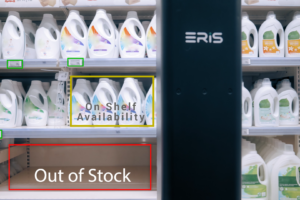Retailers and restaurants urge quick action
More than 100 retail and restaurant companies and associations urged Congress to take quick action on technical corrections to the federal tax reform law that took effect this year, saying drafting errors related to depreciation rules and “carryback” of operating losses are costing both industries millions of dollars.
“The delay in correcting these provisions has caused economic hardship for some retailers and restaurants and is also delaying investments across the economy,” the National Retail Federation, NRF’s National Council of Chain Restaurants, the Retail Industry Leaders Association and other groups said in a letter to members of the House and Senate tax-writing committees.
Under the Tax Cuts and Jobs Act, remodeling and other improvements to stores or restaurants were supposed to be fully depreciated in the first year the work is done. Instead, a mistake in the legislative language requires that depreciation be done over 39 years. Congressional officials have conceded that the 39-year requirement is a drafting error but have yet to correct the mistake.
“This very large difference in the after-tax cost of making improvements is causing a delay in some store and restaurant remodeling projects, as well as causing some retailers to decline opportunities to purchase or lease new store locations that would require substantial improvements,” the letter said. “These decisions not only deny communities the jobs associated with substantial construction projects but also deny our communities the opportunity to bring new, permanent jobs to an otherwise abandoned store or to revitalize a declining mall.”
Under a separate error, the legislation got the effective date of carryback eligibility wrong, resulting in “a retroactive tax increase on businesses that are in loss positions and already facing liquidity issues,” the letter said. “This timing difference is critical to cash-strapped businesses that were counting on the carryback to finance continuing operations as well as investments needed to revitalize their businesses.”
Source: NRF
















